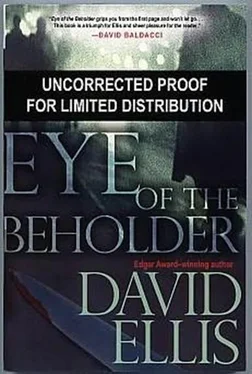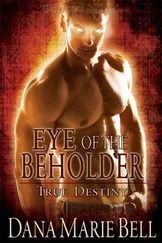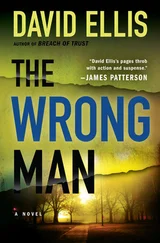“But it has to be slow.”
“I always said slow is fine.”
“No, Paul.” She laughs quietly. “You moved out of your condo into a single-family home. And that casual walk in front of the jewelry store? Remember that?”
I laugh, too, releasing two months’ worth of tension. She fits in my arms like she never left. I take in the familiar smell of her hair and the shape of her head, knowing that I’m back out on the limb, raw and exposed and thrilled and overwhelmed.
PAUL RILEY AND SHELLY TROTTER say good-bye outside of the Dunstworth Hotel with a release of their held hands, no kiss. Shelly Trotter ducks into a cab while Riley watches her, a gleam in his eye. Yes, he can see it, Riley’s feelings for this woman.
Yes, that could be helpful.
Leo pulls his baseball cap lower on his face and begins walking. It’s time to get ready for tonight.
IMAKE IT TO GALA, a new place that opened up a month ago, at half past seven. There’s already a line out the door, but I walk up to the doorman, a foreigner who is roughly the size of two men put together, and give him my name. To the bemusement of the twenty fashionably attired people standing along the sidewalk, I walk right in.
All because I said the two magic words: “Harland Bentley.”
I’m in a suit and tie, which makes me either over- or underdressed, somehow not fitting in. The downstairs is a restaurant at full occupancy. The place sports “Asian fusion” cuisine, whatever the hell that means. The waitstaff is in all black, T-shirts and jeans. The music is some kind of combination pop and dance-pop-disco fusion?-except I don’t think anyone has called it “disco” for the last decade or two. In my book there are two kinds of music, jazz and everything else. Nowadays, it’s more important how you look on a video than how well you sing. Nobody invents new music anymore, anyway, they just create a not-so-subtle variation on an old style and give it a new name.
I give my name to another guy, bigger than the first one, at the staircase that leads up to the bar. I pass a sign on the way up that indicates that this is a coming-out party for some great new artist on the scene. I decide I will not inquire what they mean by “coming out.” I pass two men in turtlenecks, one with a ponytail and one with a shaved head, both of whom wear painfully bored expressions as they bound down the stairs. The music upstairs is, well, like disco used to be. All sorts of computerized sounds, an urgent beat and thumping bass. I can’t believe people listen to this shit. The lighting is almost nonexistent, but the majority of the people are gathered near the center of the room, encircling a man who is, yes, wearing a turtleneck. This is the artist, I dare guess. I should tell him it’s seventy degrees outside.
I take a look over at the bar, briefly considering a martini, when I hear my name. Harland, with an Asian woman on his arm who is almost as tall as he and skinny as a pole. I’m putting her at twenty-three, tops. “Lisa, this is Paul Riley.”
I take her manicured hand and admire her slinky dress a moment. Jeez, this guy goes through women like I go through vodka.
“You really should meet Raven,” he says to me.
“I can’t wait,” I say, though I have no idea what he means. As he waves his hand to someone, I realize that “Raven” is the artist. A wave from Harland seems to count for a lot around here, because before I know it, Raven is standing before Harland, putting his hands together and bowing. His hair is sharply parted and standing on end. His face is pointy and delicate. If this guy didn’t get his ass kicked every day growing up, my mother didn’t raise me Irish Catholic.
“Raven,” Harland shouts over the music, “this is a friend of mine, Paul. Paul, Raven here is one of the most relevant postmodern artists to come along in years.”
I shake his hand, trying to decipher, in the dark lighting, if Raven is wearing eyeliner or if someone punched him in both eyes. If his name really is Raven, then I’m guessing it’s the latter.
“I thought the point of postmodern art was to reject the concept of relevance,” I say, leaning into him and feeling awfully satisfied. I read that somewhere. Raven either can’t hear me or pretends he can’t. Harland finds the whole thing amusing and whispers something to Lisa, who seems to be posing off to the side. He kisses her hand and turns to me.
“Shall we?” he asks me. Apparently, Lisa is going to fend for herself up at the party. I imagine she’ll be just fine. There are plenty of men who’d be happy to attend to her, and I imagine enough illicit narcotics to prop up a South American dictator.
Harland could have met me downstairs instead of making me come up to meet him. I don’t suspect he brought me up here to meet this gender-ambiguous artist. No, the point was that you always come to Harland, even if you’re meeting him on neutral ground.
Or maybe he just wants me to see his relevance, cavorting with the beautiful elite, mostly half his age, and his latest piece of eye candy. His money is old news. So are the women. But he has to be the benefactor to the art world, with the latest supermodel on his arm. He’s a walking cliché. It’s almost sad.
Almost.
Downstairs, the staff is wildly enthusiastic at his appearance. I get a lot of empty, anticlimactic nods hello after they realize I’m just some lawyer, not a movie star or artist. I do remember a painting I did, in third grade, of a house. I thought it was pretty good. Sister Virginia took one look at it and told me I should be a lawyer.
A hostess takes my briefcase before I remember that my case notes are inside. I have a file with a rundown on every single piece of litigation that my firm is doing for BentleyCo or its subsidiaries. With Harland, you come prepared. Updating him is not unlike the Socratic method in law school, where you scrambled for answers while the professor peppered you with questions that had no accurate answers. This guy oversees the worldwide operations of dozens of companies and he still keeps tuned to every detail of every piece of litigation.
We get a corner table that has been reserved. There is a step up to the table, which appropriately places us above the other diners. A waiter gallops up to the table with scrolls that are apparently menus. But I already know Harland is going to order something off the menu.
The best word to describe Harland is severe. There is no middle ground with the guy. A viselike handshake. Hair tightly cropped, almost to a crew cut. His eyes are small and fierce and liquid, as if he is constantly awaiting the opportunity to prove himself. His jaw seems permanently clenched. His shirts are heavily starched. His clothes are the nicest I’ve ever seen, and I try to wear some decent threads myself. The guy never served, but he conducts every aspect of his life in military fashion. He wakes at five A.M. every morning, swims half a mile in his pool-the outdoor one in the summer-then eats an efficient breakfast and makes it into the office by a quarter to seven. If I had a dime for every time I had voice mails from Harland when I walked into my office, voice mails from seven that morning, I’d be rich.
Richer.
“Thanks for meeting me, Paul.”
“Always a pleasure, Harland. Always.”
“Henry,” he says to the waiter who appears again out of nowhere. “Perrier with lime for me. Paul?”
I’m not sure how Harland already knows the name of a waiter in a restaurant that’s only been open a few weeks. I guess it’s that kind of small detail stuff that made him a billionaire. Either that, or the twenty million in starter money he got from the divorce.
I have a taste for my usual. Harland pauses, as if he disapproves. He doesn’t drink. Doesn’t smoke. The only vice of which I’m aware-and many others are aware, no doubt-is his mouth. This guy speaks with the smooth ease of the ultrawealthy, but if something rubs him wrong he can cuss like a truck driver.
Читать дальше












